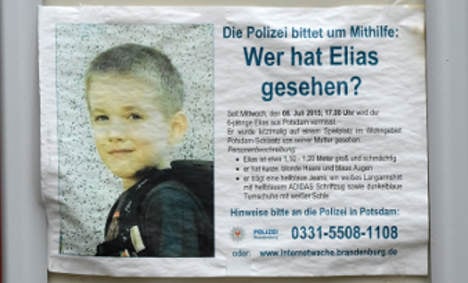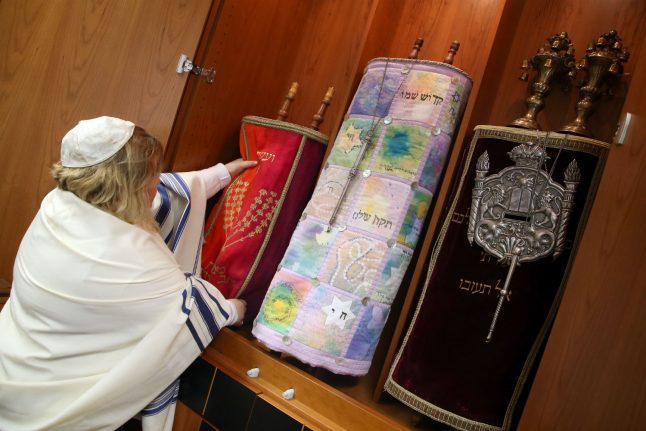A spokesman for Berlin state prosecutors confirmed to The Local on Friday that the man, named in Bild as Silvio S., had admitted to abducting and killing both Mohamed and Elias, a six-year-old who disappeared from a park near his family home in Potsdam in July.
Police and state prosecutors had said on Thursday that they were investigating a possible connection between the two cases.
“The man confessed overnight that he had also killed Elias,” Berlin police spokesman Stefan Redlich told AFP, referring to a six-year-old German boy who had been missing since July.
Investigators were combing through a garden allotment for Elias' body after the man identified as Silvio S. said his corpse was buried there.
An AFP photographer at the scene saw police transporting a body away from the allotment.
Police arrested the 32-year-old man in connection with the case of Mohamed Januzi, an Bosnian child whose family were seeking asylum in Germany.
Im Fall Mohamed haben wir einen 32jährigen Tatverdächtigen festgenommen. In seinem Auto fanden wir eine Kinderleiche. ^sr
— Polizei Berlin (@polizeiberlin) October 29, 2015
Police later found the body of a child packed in cat litter inside the suspect's car, which appeared to have been dead for some time.
An eight-hour autopsy confirmed the body was that of Mohamed, prosecutors said on Friday.
Januzi had gone missing from outside the the offices of the government office for social care (LaGeSo) on October 1st in the Berlin district of Moabit.
The boy had been missing since October 1, when his mother took him and his sisters to Berlin's main refugee registration centre, Lageso, which receives hundreds of asylum seekers daily.
His disappearance triggered a massive police operation, with the missing child's photo appearing regularly on television screens in Berlin's subway trains.
Police also released CCTV footage of a bearded man leading a child who was holding a stuffed toy.
But the search turned out to be futile as the boy “was already dead on October 2, the day after his kidnapping,” the police spokesman said.
Social care offices overloaded
As Germany gears up to receive up to one million asylum seekers this year, Berlin's Lageso has seen lengthy queues of migrants waiting to be registered and often chaotic scenes.
Fights have broken out at the centre among migrants frustrated by the long waits and a lack of information filtering down from authorities.
Large numbers of people also bring donations for refugees including clothes or food to the sprawling site which is spread across several buildings.
According to police, the suspect said he had gone to Lageso to drop off donations.
Police are now examining if the suspect was linked to other cases of missing children.
Winfrid Wenzel, head of the probe into Mohamed's disappearance, said officers were “in close contact” with counterparts in the eastern state of Saxony-Anhalt, where a five-year-old girl has been missing since May 2.





 Please whitelist us to continue reading.
Please whitelist us to continue reading.